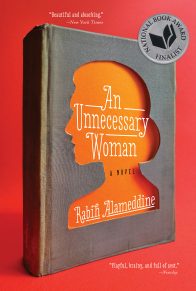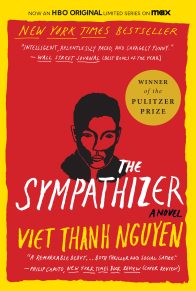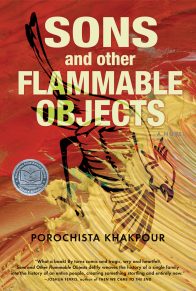Here it is in my head, right in the place where I keep feeling it and knowing it. Dad knocks on my head like my head is a door. He knocks softly because Dad has big, soft hands. He says my name, Sebby.
Sebby, he says, earth to Sebby.
I come back then, but the things I know stay stuck where they are and I keep knowing them. Dad picks me up and lifts me high so I can reach into the leaves of our tree. Dad tries to hold me up for a long time. His face turns red and a deep sound comes out of his throat, because I’m getting bigger and Dad isn’t so strong. He puts me down.
What is it? Dad asks.
I shrug my shoulders to say, Dad, I don’t know, so he’ll think that it’s all gone now. But it’s here in my head, in the dark place where you hold things and carry them around.
One thing I know is that I’m going to live for a very, very long time.
Mother liked to run in the middle of the night.
She’d wake me up and ask if I wanted to go with her. I nodded, yes. My eyes were sticky. I had to blink a lot to make them stay open.
I held Mother’s hand and we walked to the garage. She put me in my old blue stroller that smelled dirty and cold, like how the garage smelled. I was too big, but I could still fit.
Mother pushed me in fast circles around the block. The houses were dark and quiet. Nothing was moving except for us and we were going so fast.
It rained one time and we stopped under a tree.
The rain dripped off the leaves in big, slow drops.
Are you okay? Mother asked.
I nodded, yes. The rain made my stroller smell dirtier and older. Mother took off her T-shirt and her shorts. Mother was soft white like the glass on a frosty white lightbulb. The rain made her shine.
It feels nice, Mother said. She pushed my stroller and we went fast.
I liked how her feet sounded–tap, tap, tap–clean on the wet sidewalk.
I need to sleep, because my head hurts in the dark spots behind my eyes.
Sebastian, Teacher says.
I can hear Teacher’s feet click-walking closer to me. Click, click, click, closer. She puts her hand on my arm.
Are you okay, Sebastian? Teacher asks.
Behind me, Ryan pinches my back.
Ouch, I say.
The kids are laughing. Katya looks at me. She is my friend.
You’re okay, Teacher tells me.
I close my eyes and Teacher lets me sleep.
The bell’s ringing wakes me up. It’s the end of the day and everyone’s lined up at the door. They push each other outside and run. I stand up to go.
Wait, Teacher says and makes her mouth smile.
She folds a piece of paper and tells me it’s a note to give to Dad. I take it from her.
Okay, bye, I say and leave.
I walk until I’m outside of school and then stop to unfold the paper. The note says:
Dear Mr. Lane,
I’m worried that Sebastian may not be getting a full night of sleep at home. Recently, he’s been dozing off in class. I’ve also noticed him squinting and rubbing his eyes–maybe he needs glasses? As you know, I am so pleased to have Sebastian in my class–I just want to ensure that he’s getting as much as possible out of his school day. Please call me so we can discuss this.
Thank you, Judy Lambert
I don’t want Dad to read the note, so I rip it up and then I let go. The pieces blow all around. They sound like leaves on the sidewalk.
A long time ago, Mother let her papers go in the rainstorm. I followed her outside.
She said, Go back in, you’ll get yourself sick again.
I went in and watched her from the window. She ripped up her papers and let them fly in the wind. When she came back inside, her face was so white and her eyes were staring off far away, not seeing anything.
All your poems, Dad said to her.
Mother said, Sebby, I’m lonely, come sit with me.
So I sat with her and hid my face in her hair. I wanted to bite her because she smelled so good.
The rain stopped and we went out to look. Little wet papers were stuck onto the house. Dad said to help, so I helped Dad peel them off. We found one with a whole word that didn’t get washed off by the rain and Dad said to put it in my pocket, because it was for me.
What does it say? I asked.
Dad said the word said baby.















